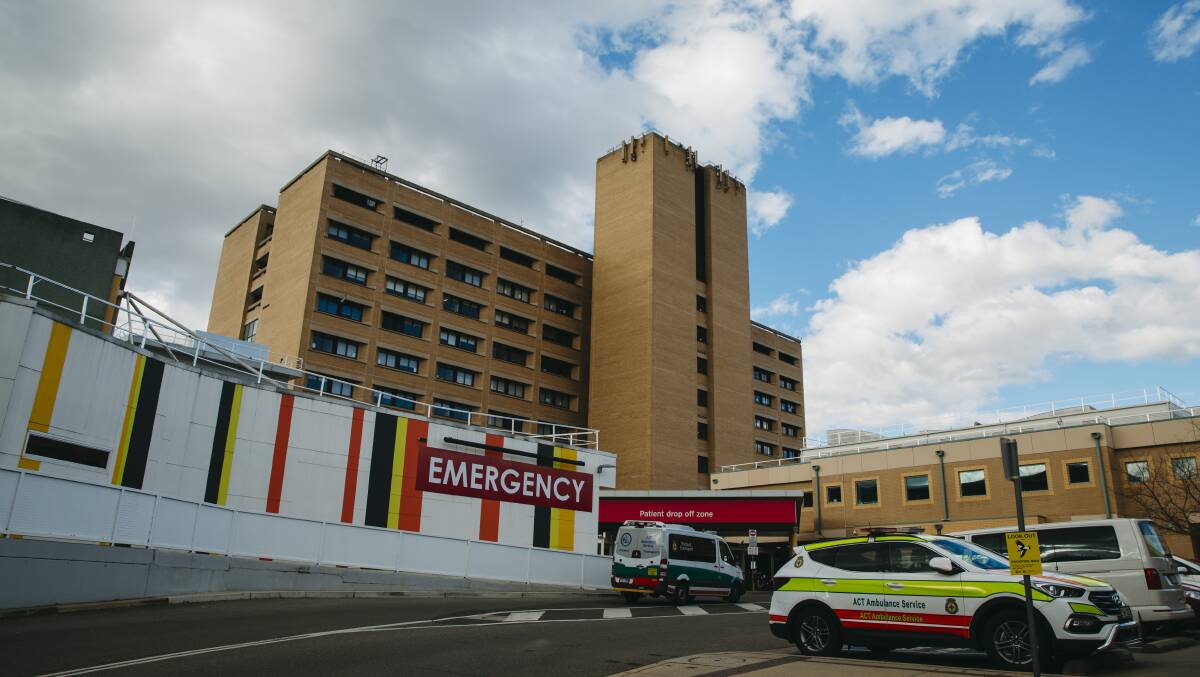
Canberrans with disabilities are spending months stuck in hospital despite being medically fit to leave, with delays processing paperwork blamed for holding up their return to the community.
The ACT and federal government have agreed to start special monthly meetings in an attempt to speed up discharge rates for National Disability Insurance Scheme participants stranded in local public hospitals.
ACT Minister for Disability Emma Davidson has been lobbying her federal counterpart Linda Reynolds to fix the problem, amid concerns about the physical and mental health toll on vulnerable patients who are being confined to hospital beds when they should be out in the community.
Senator Reynolds welcomed the new collaboration, but stressed state and territory governments were also responsible for ensuring patients were able to leave hospital.
NDIS participants in Canberra are occupying beds at a cost of about $1500 per night, and there are fears patients are at an increased risk of catching coronavirus while stuck in hospital.
The problem is far from isolated to the nation's capital, with a leaked briefing paper from last October revealing more than 1000 patients were stuck in hospitals nationwide at a cost to the public health system of more than half-a-billion dollars.

The paper recommended that as the Commonwealth-run National Disability Insurance Agency "benefits financially" when patients remain in hospital longer than is medically required, it should have to reimburse states when their stay was prolonged by administrative hold-ups or "market failures" in the scheme.
Some 19 NDIS participants were waiting to be discharged from Canberra Hospital as of early November last year, while another three were in Calvary Public Hospital either awaiting an NDIS plan or a plan review, according to ACT government figures.
ACT government data presented to a December meeting of disability ministers, seen by The Canberra Times, reveals lengthy delays in the agency processing or reviewing documents which pave the way for a participant to be discharged.
The territory government was aware of "repeated" delays of up to three months in the reviewing of documents for home modifications and assistive technology. Delays of up to eight weeks for complex cases have also been reported, according to the data.
Ms Davidson said the agency was not processing paperwork fast enough.
"When someone is in hospital for a long period of time, it's not good for their physical and mental wellbeing and the longer they're in there, the harder it is to get them home," Ms Davidson said of consequences of delayed discharge from hospital.
"If we can speed up the process, and work with the NDIA to get people home quicker, they're going to have better long-term physical and mental health outcomes. And it's actually going to cost both the federal and ACT government less in the long run."
Given the relatively small number of participants in its hospital, Ms Davidson said the ACT wanted to work with the Commonwealth to create a timely discharge model which larger jurisdictions could then adopt.

The Canberra Times has obtained a briefing paper prepared for a meeting of state and territory health ministers last October, which laid bare the scale of so-called "exit block" across the country.
The paper said approximately 264,000 "bed days" had been occupied by people with a disability who had no medical reason to be in hospital, at an estimated cost of $531 million.
Patients in Canberra hospitals were staying for an average of 45 days after their acute care episode, the report said.
"All levels of government agree that this is an unacceptable situation for people with disability, their families, and carers," the briefing paper said.
The paper revealed that administrative delays were the main barrier to discharge of "long stay" disabled patients in states including Queensland and Victoria.
But a range of other barriers were reported, including a lack of housing options or supports for patients after their release.
The report identified problems with "thin markets", a term which describes the shortage of providers able to deliver services at the price set by the NDIA.
The issue has turned public hospitals into a provider of "last resort" for participants who have nowhere else to turn to.
In one example cited in the report, a 35-year-old man with a history of mental health illness was stuck in hospital for three years because his NDIS funding was insufficient to meet his needs.
People with Disability Australia president Sam Connor told The Canberra Times she was aware of one NSW-based participant who had no option but to present to hospital over the Christmas period because their funding had run out.
She said people with a disability were more likely to die from starvation or neglect resulting from a lack of proper support than they were from COVID-19.
In separate statements to The Canberra Times, Senator Reynolds and an agency spokeswoman said state and territory governments were jointly responsible for the discharge of NDIS participants.
For example, states and territories provided the majority of social and transitional housing options, as not all people with a disability were eligible for NDIS-funded supported accommodation.
Participants in hospital might also be waiting on other state- delivered supports, such as rehabilitation, housing and homelessness services, transport, mental health, drug and alcohol and justice support.
"I know just how important it is for people to leave hospital as soon as they are ready, and I also know just how complex it can be for people with serious disability, who often have added complexities and require additional supports so they can be safely discharged from hospital," Senator Reynolds said.
The agency spokeswoman said a range of measures were in place to help with the timely discharge of patients, including a team of liaison officers who worked with public hospitals to ensure patients who were medically fit to leave hospital had the right support to transition into the community.
The agency has also created a senior executive position which will have oversight of NDIS-related hospital admissions.







